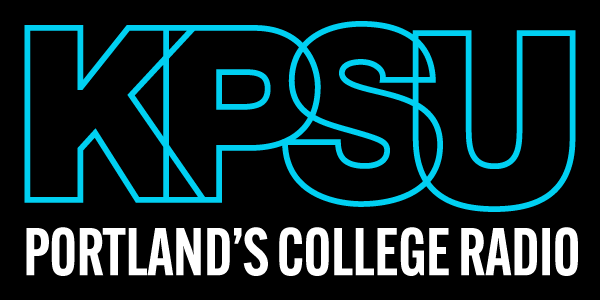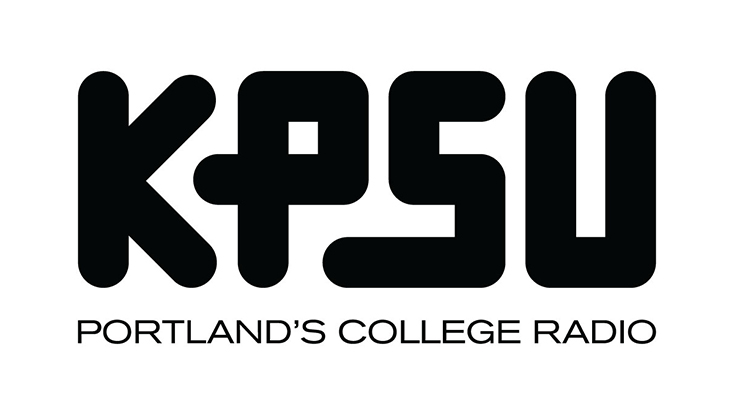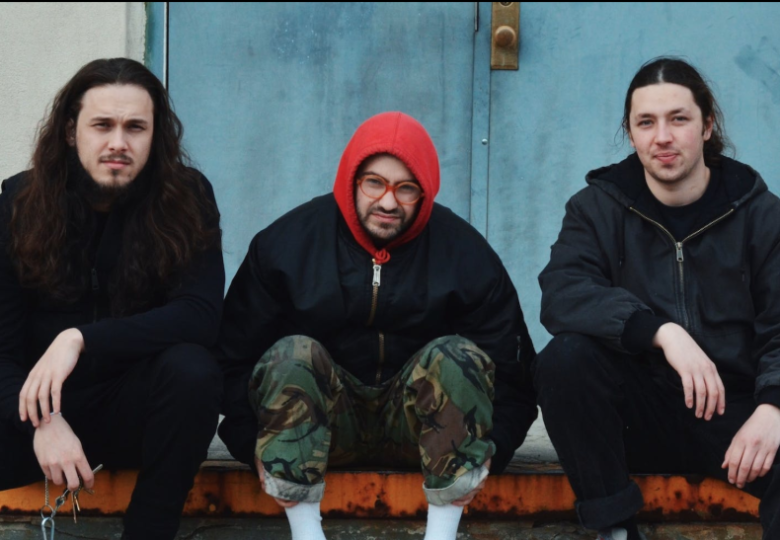Below is my interview with Aaron Bergeson (Survival Skills) about his music and upcoming show at Holoscene, presented by KPSU.
By Kryston Skinner
Kryston: Ok so I’m just gonna jump, my name is Kryston and I’m the promotions director here at KPSU. Could you tell us your first and last name and what kind of music you make:
Aaron: My name is Aaron Bergeson, for the monicker survival skills, I focus on IDM and downtempo electronic music. Outside of that I do composition and I play in a band.
K: So you have a pretty good lineup for this Holocene show what is your relationship with the other musicians you’re performing alongside?
A: Oh sure, so relics is Reese Bose, and he and I have been friends for a number of years. We’ve done many shows together. He’s quite the visual genius too, so he’s doing all the visuals for the show. Nuri Orman is actually the sound guy at Holocene, so I became friends with him from playing shows there over the years and QLOQ (Rachel) is a collaborator with Nuri on another project.
K: We’re really excited about the Holoscene show, out of all the venues I’ve been to in Portland, that’s been one of my favorites for dancing. How many shows have you played there?
A: A lot, I’ve actually been playing there for since they opened really. The last couple of years, none, because COVID. Right before the shut down, I actually had the opportunity to open for Tobacco, which was super fun. And my first show back, which was a few months ago, I opened for Kelly Lee Owens
K: That’s great, on that note, can you walk me through your creative process and what that looks like when you’re creating music?
A: I guess my creative process is to write and delete and write and delete. I kind of have a tendency to over produce, adding layer after layer on things and then taking a step away from it, and coming back. I try to peel out as much as possible. I know that is kind of non-specific, but I do everything in my production, from the lead instruments, to recording baselines, or guitar and doing all the remixing myself.
K: Yeah that does sound like a process. If you could if you could collaborate with any any musician who would it be and Why?
A: Trent Reznor. I guess that was my earliest influence into getting into electronic music. I always had an infatuation with what he was able to accomplish on his first record with Nine Inch Nails on a computer back in 1989.
K: Yeah! Trent Reznor is amazing, I was surprised by his recent work with Disney. How long have you been making music and what’s the best advice that you’ve been given that impacted your music the most?
A: Well I’m kind of one of those people that’s been playing music since they were a kid. I started taking guitar lessons when I was six years old and over the years did a bunch of singer-songwriter stuff. I was in a bunch of hard-core punk bands, moved to Portland and played in postrock bands and then somewhere along the way got really frustrated with all the gear and got really into Ableton and making computer music. I guess the best advice Is, I don’t know, that’s a really tough question, I would say keep it as simple as possible and don’t overthink it. That’s probably the best advice that I’ve gotten.
K: Nice, and it is that the same advice that you would give to musicians that are trying to break out or haven’t played shows live?
A: I think the advice that I would give to new musicians and people that are trying to break into music, is to ask questions and don’t be afraid to talk to people. That’s one thing that I learned along the way that has also been really helpful, is that most people are going to be willing to help and put you into a direction that could be really helpful that you might not otherwise get if you don’t ask.
K: Yeah I totally agree with that, just pushing the fear of rejection down.
A: Yeah I’ve played with a lot of really big artists over the years and it really came down to the fact that I just asked. Obviously, I record music and have this large back catalog, but you don’t get it if you don’t actually talk to people and shoot your shot.
K: Absolutely, speaking of your back catalog, can you give us two songs that you really like to preform?
A: Well, one that I haven’t actually played yet is off my record that came out during lockdown. It’s called Cosmic Killjoy, and I’m really excited about it. I have a hard time answering that question, because almost every set I do live, is new. So I really either write or do a variation on tracks that I’ve already done when I perform live.
” I think the advice that I would give to new musicians and people that are trying to break into music, is to ask questions and don’t be afraid to talk to people. One thing that I learned along the way, that has also been really helpful, is that most people are willing to help and put you into a direction that could be really helpful that you might not otherwise get if you don’t ask. “
K: That makes sense, so I was researching all of y’all and listening to your music and and I’m really curious as to what the vibe for the show is going to be, because of your songs, I really liked were Unrequited, Incensed and Tunnel at the End of the Light. Those have been on loop for me for this last week and a half. Can you describe to me what what the show is going to be like? Is it going to be more of dance music or is it going to be the more ethereal tracks that we found in your band camp?
A: Awesome, sure, I think the show as a whole is going to have a bit of a narrative arc. The first artist, Nuri Orman, is going to do this beautiful ambient set and it’s going to build from there. After the first part of the show, it will start dipping into a little more beat based electronic music and by the time it gets to me, I’m actually building my set to be very dance focused. So when I preform live, it just depends on the venue. If it’s Holoscene, I really like to focus on more of a dance set, but if I’m playing something at a smaller venue or more of a sit down thing then I focus more on composition and ambient music.
K: Great, yeah I’ve really enjoyed what I’ve heard on your band camp, so I’m excited to see what dance music is like for you! So It sounds like music is a big part of your life obviously, how does your day job impact that part of your life?
A: Well I feel like the construction company that I work for has been really helpful. They have been so open with scheduling and time, and I work with a lot of really creative people. The record label that I put out most of my records on, I actually met people that started that label at the company that I work at. Very brief history on that label, Cavity Search Records started in Portland in the 90s and signed the first Elliott Smith record, Heat Miser, etc. A lot of very important Portland music. I met them because they were both working at this company when I started there. And now I’ve released four records through them. So it’s definitely helped, and if I weren’t at the construction company, I definitely think I would be all in all in. writing. producing and working with other artists. I don’t imagine myself doing anything other than music or audio work.
K: Wow that’s really exciting about that label by the way, congratulations.
A: Thank you, yeah, it was really geeky for me because I moved to Portland as a teenager with a love for Elliott Smith and all the Portland music, and just met the right people I guess.
K: That’s so nice that it worked out that way! I’m so happy to hear that you had that experience. So my last question is what’s next for you? Is there anything you’re looking forward to for the next year?
A: Yeah absolutely, so I graduate from PSU in March, so I guess the next big step is prepping to open a recording studio.
K: Well Aaron that is so exciting! I can’t wait to see where that takes you. And we also can’t wait to see you live at Holoscene this Wednesday as Survival Skills with Reliqs, QLOQ and Nuri Orman. (links below)
Purchase tickets at holoscene.org and Check out our instagram for a chance to win tickets!
Holocene will require proof of fully-Covid-vaccinated status for entry into the venue.


